Agenda
ADAPT AND DELIVER, TOGETHER | CO-CREATING AN AGILE, WIN-WIN AUTOMOTIVE SUPPLY CHAIN
16:00 - 17:30 CET
Forum & networking | Talking talent, championing change – creating a more skilled, diverse, inclusive and equitable automotive supply chain
In this special forum, join industry peers and champions of talent, skills, leadership and diversity to learn how individuals and organisations can develop a more proficient, capable and inclusive workforce, equipped with exceptional leadership skills and business-savvy acumen.
SPEAKERS

Saba Azizi, Head of Service Network and Business Development, EMEA Aftersales (Aftersales Department), CATL

Harry Kwakye Davies, Senior Global Supply Manager, Automotive Industry
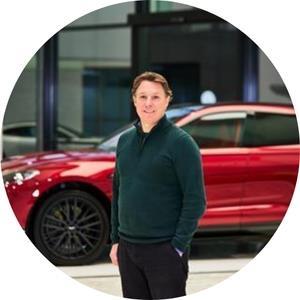
Martin Corner, Executive Director Supply Chain Management & Logistics, Aston Martin
MODERATOR

Christopher Ludwig, Chief Content Officer, Automotive Logistics & Ultima Media
Transformation, innovation and advancements in the automotive supply chain are underpinned and predicated by a global network of talented, highly skilled people at every level of an organisation. Having that set of motivated and skilled workforce, while ensuring diversity, inclusivity and equity is at the heart of it, enables automotive companies to develop new ideas, remain competitive and create win-win supply chain partnerships.
Automotive Logistics and Supply Chain Europe 2025 kicks off with a unique opportunity to connect with the industry’s progressive minds and champions of progressive change, providing an important platform for fostering cultural conversations in an open forum for discussions and sharing views on the intersection between talent, skills, and diversity. Celebrating progress made and exploring the barriers still to be overcome to achieve positive progression, this session will not just frame the discussion but also provide insights on the way forward.
18.00 - 21.00 CET
Welcome Cocktail Reception
Join industry leaders, experts, colleagues and peers for a delightful evening of networking and camaraderie at the welcome drinks reception, conveniently located at the Kameha Grand Hotel.
Dress code – Business Casual
08.00 CET
Conference open for registration, networking and refreshments
Collect your badge, explore the exhibition and enjoy a bite to eat ahead of a packed opening day.
09.00 CET
Welcome to Automotive Logistics & Supply Chain Europe
SPEAKER
Christopher Ludwig, Chief Content Officer, Automotive Logistics & Ultima Media
09.10 CET
Stream 1: Keynote | Supply Chain Decarbonisation at the BMW Group: Supply chain as a key factor
The complexity of the supply chain makes it in many ways the biggest driver of emissions for the automotive industry. In this keynote and discussion, learn which levers BMW Group is pulling to make significant gains in decarbonising its supply chain, from circularity to green energy to the tier-N supply chain, and understand how stakeholders can partner with the OEM to achieve key objectives.
SPEAKER
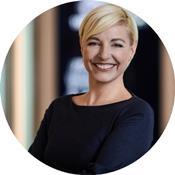
Nadine Philipp, Vice President Sustainability Supplier Network, BMW Group
MODERATOR

Christopher Ludwig, Chief Content Officer, Automotive Logistics & Ultima Media
In this exclusive keynote, BMW Group's lead for sustainability in the supplier network, Nadine Philipp, addresses just why the carmaker's supply chain will remain such a critical factor in decarbonisation as BMW ramps up electrification and in meeting the company's targets to reduce emissions. She will share more about the impact that the carmaker's 100,000-strong suppliers and sub-suppliers play in the end-to-end lifecycle of emissions, and highlight the most important levers that BMW Group and the automotive industry can pull to have major impacts.
Nadine Philipp will outline more about BMW's supply chain strategy for decarbonisation, including across major materials and inputs such as aluminium, steel and the battery supply chain; on setting clear targets and measurements for suppliers; and on digitalisation and optimisation opportunities across the supply chain.
Join this important keynote and understand why sustainability remains a critical focus and priority for BMW Group and the automotive industry in Europe despite challenging economic, regulatory and geopolitical circumstances.
09.40 CET
Stream 1: Keynote and Panel | Pushing the limits - Re-imagining Europe’s automotive supply chain to be lean and resilient
Join top automotive logistics leaders in Europe to understand how they are developing strategies and re-imagining supply chains to adapt to constant change and uncertainty, including managing production and market transformation, reducing waste and emissions, working new partnership paradigms and pushing the boundaries of innovation.
SPEAKERS

Jean-Marc Carlicchi, Vice-president, Supply Chain Engineering, Renault Group

Didier Bruneau, Global Supply Chain Director, OPmobility
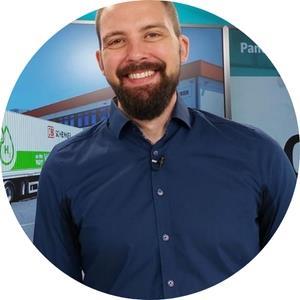
Jost Hock, European Head of Vertical Market Automobility+, DB Schenker

Olivier Storch, Deputy CEO, CEVA Logistics
MODERATOR

Christopher Ludwig, Chief Content Officer, Automotive Logistics & Ultima Media
Europe’s automotive supply chain is at a critical juncture, requiring bold strategies and innovation. Leading carmakers, suppliers and logistics providers are pushing the limits to re-imagine a more resilient supply chain that is also leaner; that is more agile but also cost effective; that is more ethical and sustainable, but even more competitive. Never has the industry faced more change and more uncertainty, with high-performing, efficient logistics and supply chains now mission critical for existing and new market players in Europe to survive and thrive.
In this session, learn about technology, data layers and processes that help manufacturers and logistics providers be more proactive and continuously engineer supply chains for efficiency, including digital control towers, artificial intelligence and new partnership models. Understand how Europe’s top logistics leaders are embracing the challenge and driving change, redesigning the supply chain footprint, integrating ethical and sustainable practices, advancing digital capabilities and boosting competitiveness as the industry navigates the uncertain, but ongoing transition to electric vehicles.
Join Europe’s top logistics minds in this agenda setting opening session and gain invaluable insights into how market leading manufacturers and providers are breaking new boundaries and forging new pathways for a thriving and flexible supply chain ecosystem in Europe.
10.30 CET
Networking, meetings and exhibition
Hosted by:

11.00 CET
Stream 1: Keynote and Panel: Dealing with demand uncertainty - Closing the gap between supply chain planning and operational execution
Discover how industry leaders are bridging the gap between supply chain planning and execution, using real-time data, digital tools, and collaboration to navigate demand uncertainty and enhance agility in an increasingly volatile market.
SPEAKERS

Agnieszka Kubiak, Senior Vice President Logistics, Brose Group
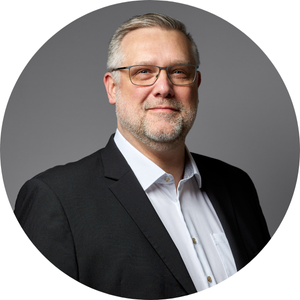
Kai Olschner, Global VP Supply Chain Engineering, DP World
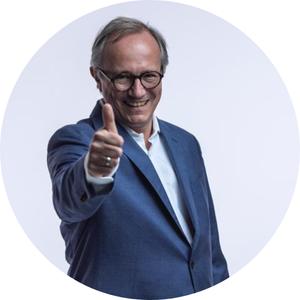
Thomas Blank, Vice President, EMEA, CNW
MODERATOR

Emily Uwemedimo, Managing Editor, Automotive Logistics
Unpredictable market shifts and uncertain market behaviour are straining the supply chain, from OEMs to their sub tier suppliers. Understand how market leaders are managing the end-to-end supply chain, improving demand forecasting and reliability, and creating more agile, responsive supply chain operations. Experts will share insights on leveraging real-time data, digital tools, and collaboration to better synchronize production, logistics, inventory levels and sub-tier supplier management, ensuring a more resilient and efficient supply chain despite extreme volatility
11:50 CET
Stream 1: Keynote and Panel | Taking aftersales and service parts logistics to the next level
Learn how Europe's top manufacturers are elevating aftersales and service parts logistics, optimizing delivery times, fill rates, and distribution options to boost efficiency and customer satisfaction, while preparing for the surge in electric vehicle and battery servicing.
SPEAKERS

Karel Verpoorten, Head of Parts Supply Chain, Toyota Motor Europe
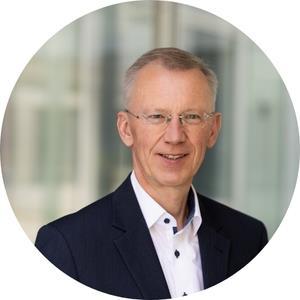
Friedhelm Glormann, COO, LKQ DACH

Katharina Uribe Casillas, SVP, Head of Global Automotive, Kuehne+Nagel
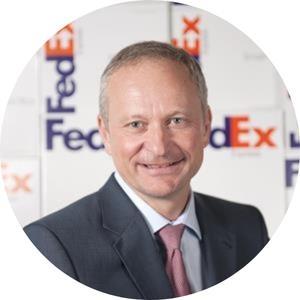
Markus Ramirez, Managing Director Global Sales – Automotive Solutions, FedEx
MODERATOR

Richard Logan, Senior Content Producer, Automotive Logistics
In a transformative era, carmakers globally must be competitive at all levels to gain and maintain market share, and whilst some carmakers can’t compete on price alone, delivering outstanding service levels has become more crucial than ever. With competition fierce amongst existing and new players in the European market, aftersales and service parts logistics is under increasing pressure to maximise revenues and operational efficiencies to satisfy customers and board members alike. In this session, hear how Europe’s leading manufacturers are pushing service parts logistics to the next level, reducing order-to-delivery times, increasing distribution options and improving fill rates across the network to remain lean and exceed customer expectations. Our panel of experts will explore the key strategies to better align aftersales supplier orders with production parts, adapt cycle times to serve changing customer habits, and prepare to service greater volumes of electric vehicles and batteries.
11.00 CET
Stream 2: Keynote and Panel | Moving with the times - Transforming Europe’s finished vehicle supply chain
Explore how Europe's finished vehicle supply chain, including major OEMs like Volkswagen Group, is transforming through network planning and design, digital innovation, strategic partnerships, and sustainable practices to tackle rising complexity while maintaining cost-efficiency, quality, and delivery performance.
SPEAKERS

Peter Hörndlein, Managing Director Vehicle Logistics, Volkswagen Group Logistics, Volkswagen Group

Kay Lemcke, Chief Operating Officer, Sallaum Lines

Frank Schnelle, Executive Director, ECG

Dennis Feddern, Senior Vice President Vehicle Logistics, INFORM
MODERATOR

Christopher Ludwig, Chief Content Officer, Automotive Logistics & Ultima Media
Shifting product and powertrain mix demand patterns, fierce competition from new market players, and evolving vehicle distribution strategies are increasing the complexity of Europe’s finished vehicle logistics supply chain, at a time when driving efficiency and competitiveness is a top priority, and sustainability demands are becoming ever more stringent. This session will explore how OEMs and logistics providers are adapting vehicle logistics networks to optimise transport costs and emissions, manage inventory and lead time, and improve quality as they respond to rising competition and changing customer expectations. Experts will also discuss the digitalisation and processes changes, as well as adapting mindsets and organisations to be fit for today and the future.
11:45 CET
Stream 2: Hackathon | Co-creating innovation for Finished Vehicle Logistics
Join this dynamic and interactive workshop, which will harness our audience’s expertise to overcome barriers and find common solutions in key areas: Sustainability, Transparency and Capacity Management
SPEAKERS

Martina Graser, Director, Material Planning and Logistics, Ford Motor Europe

Levent Yuksel, Freight Operations Director, JLR

Frits Mehrtens, Interim Managing Director, RPM
MODERATOR

Christopher Ludwig, Chief Content Officer, Automotive Logistics & Ultima Media
In this interactive hackathon and workshop, participants will collaborate to develop practical frameworks and solutions to advance Europe’s finished vehicle logistics. Teams will break into focus areas with the aim of generating solutions that reduce emissions, improve visibility and improve capacity planning. After the interactive session, workshop leaders will share a key summary of results and action points with the audience.
Workshop 1 – Improving visibility in vehicle logistics
Moderated by Martina Graser, Director, Material Planning and Logistics, Ford Motor Europe
This workshop will address how carmakers, logistics and technology providers should work together to establish the right level of transparency, implement the right technology and define processes to better respond and anticipate changes in the network.
Key questions will include:
-What is the right level of transparency needed in vehicle logistics?
-What gaps exist in the logistics network and with partners, and how can they be filled?
-What are the right tools and technology for visibility?
-What data strategy is needed to best connect end-to-end vehicle logistics processes?
-What internal processes are needed for companies to optimise and engineer networks based on improved transparency?
Workshop 2 – Speeding up the sustainability shift in vehicle logistics
Moderated by Levent Yuksel, Freight Operations Director, JLR
This workshop will address the urgency of decarbonisation and sustainability in finished vehicle logistics, and especially how the European industry can better work together to implement green freight technology, alternative fuels and manage the regulatory landscape.
Key questions will include:
-Which alternative fuels can be implemented at scale, and how can barriers be overcome?
-What optimisation opportunities should be maximised to reduce emissions, including modal shift and improved utilisation?
-What is the potential and drawbacks of e-trucks and other zero emission technology?
-What cooperation models are needed to invest and finance decarbonisation?
-How can the industry best leverage and navigate regulations green subsidies, for example across green corridors?
Workshop 3 – Improving vehicle logistics capacity management and planning
Moderated by Frits Mehrtens, Managing Director, RPM
This workshop will address how Europe’s vehicle logistics industry can better plan and manage transport capacity, including how to best align supply and demand, find the right balance between asset-heavy and asset-light approaches, and develop economically viable capacity planning.
Key questions will include:
-What are the short-term and medium-term risks in current vehicle logistics capacity in Europe?
-How can OEMs and logistics providers better navigate swings between capacity shortages and excess?
-How can technology and communication better help to fill existing assets?
-What is the balance and opportunities between relying on asset-heavy versus asset-light fleet and business models?
-How can the industry better respond to fast changes and new requirements in vehicle logistics, whilst maintaining stable capacity planning?
12:45 CET
Lunch & networking
Hosted by:

14:00 CET
Stream 1: Steering the supply chain through Europe’s EV transition
Understand how leading manufacturers are designing and building operational excellence into electric vehicle supply chains, with heightened flexibility to manage the transition’s uncertain trajectory
SPEAKERS

Aleksej Krükov, General Manager Overseas Service EMEA, CATL

Lucie Dobeer, Head of Automotive, Unipart

Antony Yiakoumi, Global Account Director – Automotive, DSV
MODERATOR

Riad Mannan, Content Producer, Automotive Logistics
Stay on the pulse of Europe’s dynamic electric vehicle and battery charge, exploring shifting trends and volume trajectories, infrastructure investments and short and longer-term logistics requirements, complexities and opportunities across hazardous material handling, storage, recycling and transportation, and re-examine the role of logistics and supply chain in supporting EV affordability.
14:45 CET
Stream 1: Keynote | High-value supply chains: lessons in logistics planning and performance for bespoke manufacturing and logistics
Discover the unique and nuanced logistics challenges faced by highly specialised and bespoke manufacturers, like Aston Martin, and explore how effective supply chain management can transform a carmaker’s business journey.
SPEAKERS

Martin Corner, Executive Director Supply Chain Management & Logistics, Aston Martin

Rob Gammon, Director of Operations Planning & Vehicle Logistics, Aston Martin
MODERATOR

Christopher Ludwig, Chief Content Officer, Automotive Logistics & Ultima Media
Ultra-luxury and specialised carmakers face a unique set of supply chain and logistics challenges, as even minor disruptions or market shifts can lead to high levels of inventory or delays. Those companies that put more focus on strong logistics and supply chain control functions will see increased flexibility, reduced costs and better supply chain performance. These are lessons also relevant to higher volume manufacturers, as they manage more bespoke, specialised models and technologies. Join this session for a deep dive into strategies for premium and bespoke manufacturers and high-value supply chains, with a focus on how logistics management and partnerships can enhance customer satisfaction and financial results.
As part of this session, gain unique insights from Aston Martin’s supply chain leader, Martin Corner in a special keynote presentation, as he outlines his vision for the carmaker’s supply chain strategy and reveals the complexities of building an advanced supply chain organisation for the luxury sportscar manufacturer, including how to integrate S&OP processes, and manage forecasting, small-batch ordering and lower volume logistics, as well as the need to collaborate closely with engineering and purchasing.
Join this session and learn more about:
- How Aston Martin is transforming its supply chain management strategies for end-to-end oversight
- Managing supplier risk across highly specialised supply bases
- The transformative role of strong logistics management and integrating S&OP processes across bespoke and mass-volume supply chains
- How to adapt high-volume supply chain strategies and tactics for the high-value sector
14:00 CET

Stream 2: Keynote | European Packaging and Packaging Waste Regulation – Implications for the automotive industry
Get up to speed on the latest European Packaging and Packaging Waste Regulation developments and its impact on automotive logistics, as experts share details strategies to navigate compliance, reduce waste, and implement eco-friendly packaging solutions while maintaining cost efficiency and supply chain resilience.
SPEAKERS

Eric Lambert, Managing Director, GALIA and Chairman, ODETTE
MODERATOR

Richard Logan, Senior Content Producer, Automotive Logistics
The European Packaging and Packaging Waste Regulation introduces new requirements aimed at reducing environmental impact and promoting sustainability, though the roadmap for compliance remains unclear across European businesses and industries. This session will explore the latest regulatory updates and implications for the automotive packaging and logistics industry, focusing on compliance challenges, reporting obligations, and the transition to more eco-friendly packaging solutions. Industry experts will discuss strategies to meet these regulations while balancing cost efficiency, waste reduction, and supply chain resilience. Learn how the automotive sector can adapt to these evolving standards and contribute to a more sustainable future.
14:20 CET

Stream 2: Panel | Automotive packaging – the next competitive advantage
Discover how innovative packaging solutions and container management strategies are becoming the next competitive advantage in the automotive supply chain, unlocking cost savings, boosting efficiency, and driving sustainability through optimized material flows and cutting-edge designs
SPEAKERS

Olivier Cotillard, Packaging Circular Economy Expert, Renault Group

Rob Newing, Returnable Packaging Operations Leader, Cummins
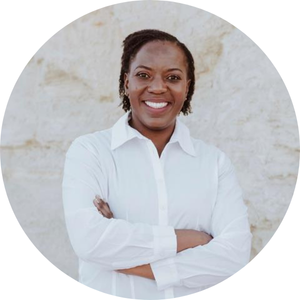
Sophie Dzumbunu, Global Portfolio Manager – Automotive, CHEP

Rodney Salmon, Business Development Director, Tri-Wall Circular
MODERATOR

Richard Logan, Senior Content Producer, Automotive Logistics
In the drive for ever-greater efficiency and competitiveness, automotive leaders and packaging specialists are investing in packaging and material flow design, engineering, and management strategies, as packaging and container management becomes the next competitive advantage in the automotive supply chain. By optimizing packaging flows and materials, manufacturers can unlock significant cost savings, enhance transport network efficiency, and reduce waste and emissions. Understand what’s driving innovation in automotive packaging and where logistics leaders are prioritising and investing to future-proof their container management strategies, and explore how innovative packaging solutions, from returnable containers to lightweighting and sustainable materials, are driving both operational excellence and sustainability.
15.15 CET
Networking & refreshments
Hosted by:

15:45 CET
Stream 1: Keynote | Combine to shine: Breaking new ground together for sustainable and flexible multimodal networks
Hear how manufacturers, including AUDI AG, are developing flexible combined transport solutions to reduce emissions and optimise logistics processes.
SPEAKERS
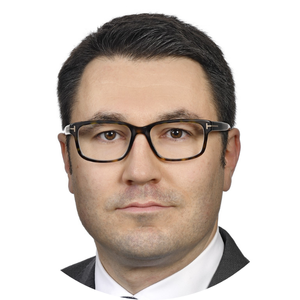
Dr. Reinhard Baller, Head of Transport Planning Inbound, AUDI AG
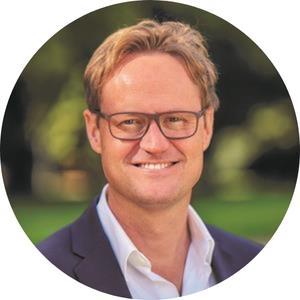
Roman Noack, Co-founder & CEO, Helrom GmbH
MODERATOR

Megan Kelly, Assistant Editor, Automotive Logistics
In response to mounting pressures on Europe's automotive logistics leaders to cut emissions, costs, and risks, the demand for better rail and intermodal transport has never been greater. Achieving sustainable, resilient, and cost-efficient intermodal logistics necessitates a holistic approach to supply chains, integrating innovative approaches and technologies and enhancing interoperability among logistics providers. In this session, discover how manufacturers, like Audi , are bringing their strategy to life to achieve low emission, seamless multimodal and flexible networks. You will also hear how Audi is partnering with rail freight specialists Helrom to integrate rail and road freight as part of the carmaker’s continuous drive to reduce emissions and improve delivery performance between its suppliers and its plants.
.15:45 CET

Stream 2: Workshop | Preparing for change – unpacking PPWR and future-proofing sustainable packaging strategies
Join this interactive workshop to understand, co-create and future-proof best practises for cost-effective sustainable packaging strategies in an increasingly stringent and complex regulatory environment.
Workshop leaders

Maurice Hahn, Sales Director, Antalis Verpackungen

Philip Bitterman, Editor-in-Chief, neue verpackung
The European Packaging and Packaging Waste Regulation (PPWR) is poised to drive significant change in the industrial and automotive packaging sectors, compelling packaging users and equipment manufacturers to rethink designs, processes, and life cycles. Yet, achieving universal compliance remains complex, as regulations vary across member states, and standardised frameworks for recycled material usage, extended packaging lifecycles, and waste prevention are still evolving.
In this interactive workshop, join industry leaders and experts to explore practical strategies for sustainable, cost-effective packaging that aligns with the shifting regulatory landscape. Join this session and address key topics including:
- Will PPWR guidelines align with existing sustainable packaging practises and processes?g
- Tools, data and methodology for efficiently calculating and reporting packaging waste
- Navigating regulatory uncertainties and ensuring PPWR compliance doesn't escalte costs
- Optimal packaging materials for PPWR compliance, durability and end-of-life recycling
16:30 CET
Stream 1: Keynote | Planning ahead - European and Global production and sales outlook
Gain expert analysis and insight on the market drivers, disruptors, economic and geo-political factors shaping the forecasts for European and global vehicle production and sales, including electric and hybrid vehicles, and the key trends impacting the supply chain.
SPEAKERS

Henner Lehne, Vice President – Global Vehicle Forecasting, Automotive, S&P Global Mobility
MODERATOR

Emily Uwemedimo, Managing Editor, Automotive Logistics
17:10 CET
Stream 1: East meets West – What does new competition from China mean for Europe’s automotive logistics and supply chain?
Explore how the rise of Chinese carmakers in Europe is reshaping the region’s automotive logistics and supply chain, uncovering both challenges and opportunities for innovation, optimization, and increased flexibility in response to new competitive pressures.
SPEAKERS

Matthias Schmidt, European Autos Analyst, Schmidt Automotive Research
MODERATOR

Richard Logan, Senior Content Producer, Automotive Logistics
As Chinese carmakers rapidly expand their sales and production footprints in Europe, the region’s automotive logistics and supply chains face new competitive dynamics. This session provides expert analysis on Europe’s evolving automotive landscape, exploring the key threats and opportunities for existing players and new market entrants, from adjusting to shifting market shares to managing tariffs and international trade complexities. Experts will explore the strategic implications for vehicle production and logistics and distribution networks, and global trade flows, and discover how heightened competition can be the catalyst for innovation, optimisation and hyper-flexibility.
18:00 - 21:00 CET
Automotive Logistics & Supply Chain Europe Networking Dinner
Experience an enchanting evening under the starlit sky at our Networking Dinner on the picturesque river Rhine. Discuss the day’s highlights and unwind whilst taking in the views and enjoying the gourmet cuisine with fellow attendees. The vessel departs from and returns to the Kameha Grand Hotel.
Hosted by:

21.00 - 23.00 CET
Afterglow
Dress code – Business Casual
08:30 CET
Conference open for registration, networking and refreshments
Re-group and re-fuel for day two with some early morning refreshments, and kick start the conversation with new-found colleagues and connections.
09:00 CET
Stream 1: Keynote and Panel | Digital strategies for agile and competitive supply chains
Discover how Europe’s major manufacturers and logistics providers are embracing the digital era, investing in and implementing advanced technologies such as IoT, AI, and real-time data analytics to revolutionise their logistics and create a leaner, cleaner, more resilient and more competitive supply chain.
SPEAKERS

Dr Gisela Linge, Vice President Global Logistics, Autoliv

Fabian Pobantz, VP Operation Digitalization & IT - Supply Chain and Purchasing, Schaeffler

Thomas Bartsch, Senior Industry Principal, Kinaxis
MODERATOR

Richard Logan, Senior Content Producer, Automotive Logistics
Digitalisation is transforming automotive logistics, offering new strategies to create leaner, cleaner, more flexible yet competitive supply chains. Harnessing innovations such as IoT, real-time tracking, data analytics, AI, and machine learning is key to increasing transparency, mitigating disruptions, and optimising logistics flows. Discover how cutting-edge digital tools are enabling companies to predict demand, streamline operations, and enhance collaboration across the supply chain. Experts will share insights on building a data-driven, agile logistics network that reduces costs, emissions, and risk in an evolving industry landscape.
09:45 CET
Stream 1: Hackathon | The AI revolution - Integrating artificial intelligence into automotive logistics and supply chain
Join a dynamic, co-creative hackathon to explore AI’s transformative potential in automotive logistics and identify practical applications and opportunities across core logistics and supply chain functions including supply chain planning, inbound material logistics and transport management systems
SPEAKERS

Dr Gisela Linge, Vice President Global Logistics, Autoliv

Sabine Isenbort, Manager Inbound Logistics Operations, Ford Europe

Fabian Pobantz, VP Operation Digitalization & IT - Supply Chain and Purchasing, Schaeffler
MODERATOR

Richard Logan, Senior Content Producer, Automotive Logistics
In this interactive hackathon and workshop, participants will collaborate to develop practical frameworks and solutions across people, process, data and technology to integrate AI technologies into supply chain and logistics systems, processes and functions. Teams will break into focus areas with the aim of identifying common barriers and requirements across People, Process, Data and Technology, and developing best practices for advancing artificial intelligence integration in demand and production planning, material flows and transport management. After the interactive session, workshop leaders will share a key summary of results and action points with the audience.
Workshop 1 – Advancing supply chain planning
Moderated by Dr Gisela Linge, Vice President Global Logistics, Autoliv
Workshop 2 – Optimising freight and transport management
Moderated by Fabian Pobantz, VP Operation Digitalization & IT - Supply Chain and Purchasing, Schaeffler
Workshop 3 – Improving inbound logistics management
Moderated by Sabine Isenbort, Manager Inbound Logistics Operations, Ford Europe
10:30 CET
Networking & refreshments
Hosted by:

11:00 CET
Stream 1: The Sustainable Shift - Making green logistics the most competitive solution
Discover how the automotive industry is transforming green logistics into the most competitive option, through sustainable transport, innovative packaging, and strategic partnerships that enhance cost-efficiency and compliance with European environmental regulations.
SPEAKERS

Levent Yuksel, Freight Operations Director, JLR

Andreea Serbu, Senior Manager, External Affairs, ECG

Didier Bruneau, Global Supply Chain Director, OPmobility
MODERATOR

Christopher Ludwig, Chief Content Officer, Automotive Logistics & Ultima Media
As sustainability becomes a core driver of competitiveness, the automotive industry is shifting towards green logistics as the optimal choice. Manufacturers and logistics providers across road, ocean, and rail transportation are investing in sustainable transport equipment, eco-friendly materials, and innovative packaging. This session explores how co-creative partnerships, standardisation, emission reporting, and compliance with European environmental regulations are advancing green logistics. Discover strategies for making sustainable practices not only viable but the most cost-effective and efficient option across the entire supply chain.
11:45 CET
Stream 1: Unlimited potential – empowering women in automotive logistics
Join progressive peers and forward-thinking colleagues to share and learn how to drive cultural change, empower women peers and co-workers, and make the automotive supply chain a leading sector in diversity and inclusivity
SPEAKERS

Dr Gisela Linge, Vice President Global Logistics, Autoliv

Melissa Atienza, Director Supply Chain Director | Europe (Aftersales) JLR

Jennifer Coulter-Lissman, CEO & President, NTG Supply Chain Solutions
MODERATOR

Megan Kelly, Assistant Editor, Automotive Logistics
11:00 CET

Stream 2: Leading with the pack – packaging as an enabler of supply chain strategy
Hear how manufacturers and packaging specialists are challenging the packaging status quo from material choices to product lifecycles and technology applications, and design-for-production and design-for-logistics principles to deliver cost savings and emissions reductions across supply chain and manufacturing operations
SPEAKERS

Julian Brandt, Research Scientist, Fraunhofer Institute for Material Flow and Logistics

Andy Winebloom, Senior Manager, Toyota Motor Europe

Chay Ankers, Market Sector Business Unit Director, DS Smith Packaging
MODERATOR

Richard Logan, Senior Content Producer, Automotive Logistics
In today’s automotive supply chain, packaging is no longer just a protective necessity—it’s a strategic enabler of cost efficiency, sustainability, and supply chain resilience. Automotive OEMs and suppliers who consider packaging requirements early in programme planning processes – including design, materials and cost – will often see significant savings and reductions in risk. As European regulations and carmaker and component suppliers’ packaging needs evolve, forward-thinking manufacturers and packaging specialists are challenging the packaging status quo, from material choices to product lifecycles, technology applications, and design-for-production and design-for-logistics principles.
Hear from packaging innovators and experts adding a new dimension to automotive packaging and redefining the strategic and operational influence, impacts and benefits that advanced packaging engineering and planning can deliver. Join this session for inspiration and practical insights on how leading manufacturers and packaging specialists are unpacking new-found packaging potential for the automotive supply chain.
11:30 CET

Stream 2: Workshop | Packaging Solutions for the Battery Supply Chain
Join this interactive workshop to collaborate with packaging and material flow experts on innovative solutions for safely and efficiently transporting EV batteries, while exploring the latest designs, regulations, and strategies to optimize cost and minimize environmental impact in the battery supply chain.
Workshop leader

Philip Bitterman, Editor-in-Chief, neue verpackung
As the demand for electric vehicles rises, handling and packaging requirements for EV batteries present unique challenges and requirements. This interactive workshop explores the specific needs for safely transporting, storing, and managing battery packs, including hazardous material regulations, temperature control and materials. Join fellow packaging and material flow experts to discuss the latest innovations in packaging design, materials, and logistics strategies to ensure the safe, compliant, and efficient movement of batteries through the supply chain, while minimizing environmental impact and optimizing cost-effectiveness for carmakers.
12:30 CET
Lunch & networking
Hosted by:

13.45 CET
Stream 1: Trucking ahead - The roadmap for a cleaner, more advanced road freight network
Discover the vision for zero-emission and technology-led road freight in Europe and the key steps, innovations and investments needed to achieve it.
SPEAKERS
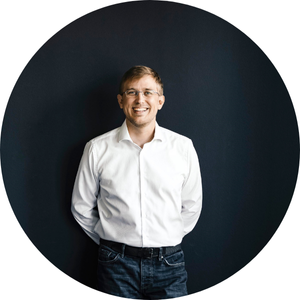
Dr Andreas Kammel, Vice President Alternative Drivetrains, TRATON
MODERATOR

Christopher Ludwig, Chief Content Officer, Automotive Logistics & Ultima Media
Europe's road freight transportation is on the cusp of a major transformation, driven by autonomous technologies and alternative fuels, with large-scale implications for Europe’s automotive logistics and supply chain. This session will explore the roadmaps and timelines for developing and adopting electric, hydrogen, and autonomous heavy-duty commercial vehicles, highlighting key investments and infrastructure requirements, progress made and barriers to widespread adoption across automotive parts and vehicle logistics networks. With insights into current use cases from leading commercial vehicle manufacturers and operators, attendees will learn how Europe is progressing towards a greener, smarter road freight network.
14:15 CET
Stream 1: Co-create and conquer – delivering a win-win supply chain
Join OEMs, suppliers, and logistics experts in this closing session to discover how co-creative partnerships are driving a resilient, agile, and sustainable automotive supply chain that overcomes complexity, cuts costs, and ensures competitive success.
SPEAKERS
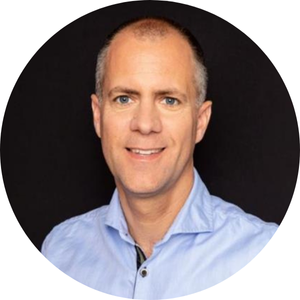
Joost Dirkse, Director, Logistics, HARMAN Automotive

Chris Payne, Global Logistics Director, GKN Automotive
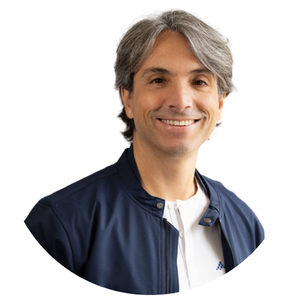
Mauro Rodrigo Gonzalez, President & Chief Commercial Officer, Ascent Global Logistics
MODERATOR

Christopher Ludwig, Chief Content Officer, Automotive Logistics & Ultima Media
Adapting to change requires collaboration, and co-creating agile solutions is the key to building a resilient, win-win automotive supply chain. The closing session of ALSC Europe 2025 will bring together OEMs, suppliers, logistics providers, and technology experts to explore how co-creative partnerships can overcome rising complexity, cut costs, optimise transport networks, and improve sustainability. Through shared innovation, standardisation, and collaborative planning, Europe’s automotive logistics leaders will demonstrate how working together not only drives competitive advantage but ensures flexibility and success amidst growing market and regulatory pressures.
